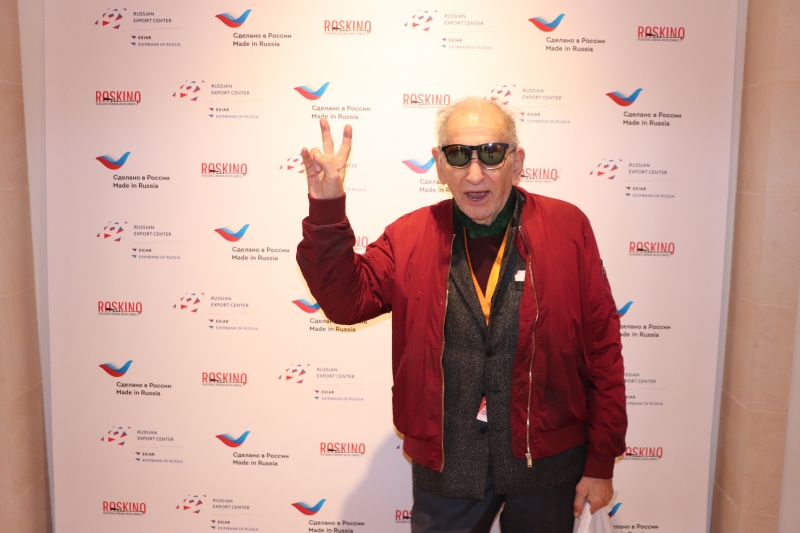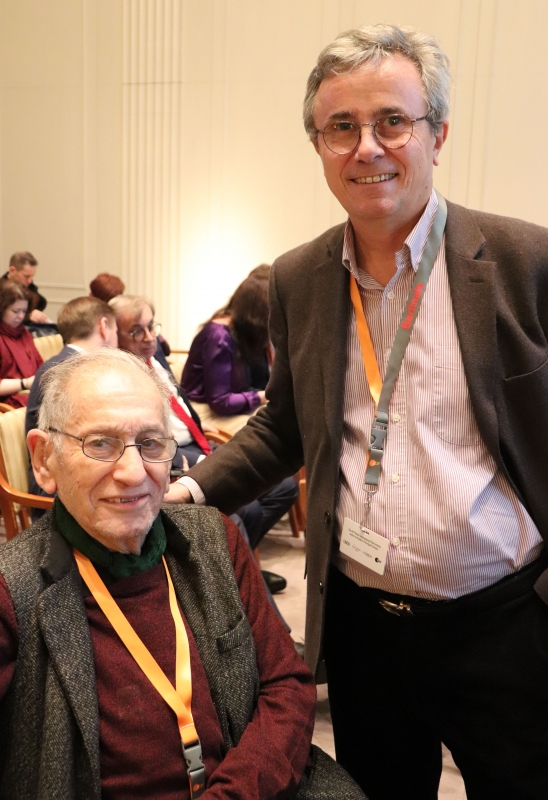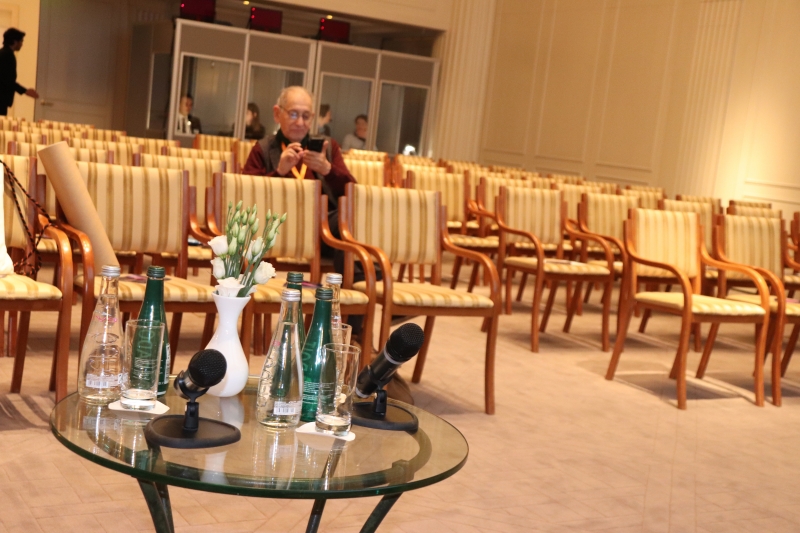|
|
||
|
Pro Tools
FILMFESTIVALS | 24/7 world wide coverageWelcome ! Enjoy the best of both worlds: Film & Festival News, exploring the best of the film festivals community. Launched in 1995, relentlessly connecting films to festivals, documenting and promoting festivals worldwide. Working on an upgrade soon. For collaboration, editorial contributions, or publicity, please send us an email here. User login |
Golden Apricot Reviews: Three aspects of Genocide
By Alex Deleon, filmfestivals.com
Evolucion, director Kornel Mundruczo, Hungary.. A stifling regurgitation of all the atrocities perpetrated upon the Jews in the concentration camps and elsewhere, as told by a bitter aging Hungarian mother to her unreceptive daughter. The mother was born in Auschwitz and somehow survived to tell the tale. The daughter who would rather forget the Holocaust doesn't really want to hear all this, but the mother dumps it all on her nevertheless in relentless Hungarian. Nothing we haven't heard many times before comes up except for the oddity that the Germans banned the sale and eating of Carp because it was regarded as a "Jewish fish". Of course carp was the main ingredient in the typical Jewish delicacy known as Gefilte Fish. At this point I had had my gefill of grim Holocaust recitation and took a walk.
Babi Yar, Context. Next on the day's agenda was another angle on the Holocaust, the massacre of 30,000 Jews on the outskirts of Kiev early in the German invasion of Russia, this in the form of a two hour long documentary composed entirely of fading blurry archival footage from both the German and Russian sides. Babi Yar has been the subject of several earlier films but this is the first from a Ukrainian perspective. All this meticulously assembled by leading Ukrainian filmmaker Serge Lomnitsky, whose offbeat films are regularly seen on the film festival circuit. Starting out with the announcement in the Soviet Union of the German invasion at precisely 4 AM on June 22, 1941, it takes an hour before we will even get to Kiev. Most of the first hour is taken up with the capture and occupation of Lemberg, the German name for the border city now known as Lviv. Despite the massive destruction wreaked by the advancing Wehrmacht hordes we see that they are welcomed by the Ukrainians as liberators from despised Russian oppression. Scenes showing wanton destruction of homes, of advancing columns of tanks, palls of rising black smoke, and the rounding up of hundreds of now homeless civilians are set off one from another by rather lengthy blackouts. The feeling is like that of an extended dreamy newsreel. Which seems to be the effect Lomnitsky was aiming for. When we finally get to Kiev near the end of hour one the Germans are once again welcomed by the populace. Wives are allowed to be reunited with husbands held as prisoners of war. The men are told they can new return to their civilian jobs and will work for the good of the Third Reich. Images of Hitler, the Liberator, are put up everywhere even on the front of a streetcar. Now the Germans get down to work and start rounding up Kiev's large Jewish population. They are marched out to a ravine in the countryside and made to dig their own graves. In a single night and the following day some 30,000 are systematically slaughtered and their bodies dumped into the mass graves, layer upon layer, in the infamous ravine. The Germans cynically accuse the Russians of this massive atrocity. Many years after the war the Russian poet Yevgeny Yevtushenko will set the record straight with his famous poem entitled "Babi Yar",
Finally, a third genocide related film, the Documentary "Return to Sölöz" by France based Argentine director Serge Avédikian. Avédikian was born in Yerevan in 1955 but taken to France at age three where he was educated and entered the film profession, first as an actor, subsequently as a prolific director as well. This highly personal auto documentary follows him on three visits to the Turkish village where his grandfather was born. Sölöz, once an Armenian town, was evacuated by the Armenians in 1915 during the Turkish Genocide and Avédikian is determined to trace his distant roots in Turkey. Three visits were spaced out over two decades. On each one he interviewed local people, established friendly relations with several, and even came upon one Armenian still residing there. His avowed purpose was to establish a meaningful dialogue with the Turks, not to cast accusations. This is admirably accomplished during his visits and remains of old Armenian tombstones, long hidden from view, are unearthed and uncovered. A film of nostalgia but also of revelation which inevitably addresses the issue of Turkish genocide denial from a slightly different point of view. 10.10.2021 | ALEX FARBA's blog Cat. : FILM
|
LinksThe Bulletin Board > The Bulletin Board Blog Following News Interview with EFM (Berlin) Director
Interview with IFTA Chairman (AFM)
Interview with Cannes Marche du Film Director
Filmfestivals.com dailies live coverage from > Live from India
Useful links for the indies: > Big files transfer
+ SUBSCRIBE to the weekly Newsletter Deals+ Special offers and discounts from filmfestivals.com Selected fun offers
> Bonus Casino
User imagesAbout ALEX FARBAThe Editor |






























